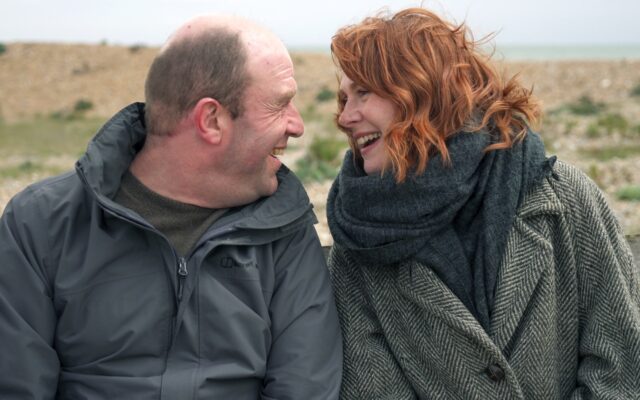Unforgotten
Series 4
ITV
As the world eased back into some sense of normality, the return of familiar drama was reassuring and provided an interesting take on learning disability.
The nation held its breath for series 6 of Line of Duty on BBC1, and the first episodes saw a peripheral character, Terry Boyle, returning to take centre stage and grab more of the storyline. The character of Boyle is played by Tommy Jessop, who has Down syndrome and has previously been interviewed in Community Living about his role in a short film, Innocence (A killer role, autumn 2020). In the first series, Boyle was an acquaintance of a gang that cruelly exploited his learning difficulties and manipulated him to use his flat to hide a corpse in his freezer. In series 5, he was interviewed by the police for information and, in this series, becomes the prime suspect of the murder of a journalist. While the return of a character with learning disabilities was great to see, it was not without controversy. The first episode saw Superintendent Ted Hastings referring to Terry Boyle as the “local oddball”, and the BBC received more than 300 complaints about the use of the phrase.
However, the Down’s Syndrome Association said it was “fantastic” to see an actor with the condition in the show and felt this was the most important part of it. A spokesperson told the MailOnline: “The reality is that people who have Down’s syndrome sometimes do experience hurtful language and we all have a responsibility to speak up when we witness this.”
Writer Jed Mercurio insisted the term referred to a previous case the characters were discussing, when it was used to describe a suspect who was considered a loner and eccentric, and that the dialogue had no meaning or connotation that related to the character’s disability. While it was refreshing to see a character with a learning disability being given a continuing role through the series, the next step would be to cast an actor with learning disabilities in a mainstream role that is not written around their condition.
Jessop has been raising awareness of learning disabilities not just through his acting; he has backed the establishment of the All Party Parliamentary Group for Down Syndrome. The group was launched at its inaugural meeting in Westminster on 12 May and will be supported by the Down Syndrome Policy Group (www.dspg.uk). Advocacy and support groups will work with the cross-party group of MPs to raise issues affecting people with Down syndrome and their families and carers, as well as to promote equality and respect at all stages of life.
Jessop said: ”I want to see people with Down syndrome treated equally with others before and after they are born. “We are the only group of people in the UK where people try to end our lives before we are born – just because we have Down syndrome. This is not fair. It scars our lives and causes mental health problems.”
Unforgotten
Jessop’s words remind us of the storyline in ITV soap opera Emmerdale, which caused controversy in the way it handled the termination of a pregnancy following a diagnosis of Down syndrome, and the discussion that emanated from the handling of the script (How Emmerdale got it so very wrong, spring 2021).
In contrast, another TV series chose to portray a Down syndrome diagnosis in a more nuanced way, and also included a storyline of family life with a child with learning disabilities. In the fourth series of Unforgotten on ITV, one of the main suspects in an old murder case being reinvestigated was Dean Barton (Andy Nyman) who shines as a family man with a devoted wife and two sons. He is a tireless charity worker for his son Jack’s school. Jack (Rory Averdieck) has learning disabilities and, while Barton spends a lot of time with both sons, he finds the balance difficult and overcompensates with Jack.
In the same series, another suspect – DCI Ram Sidhu (Phaldut Sharma) – struggles with impropriety alleged against him and what he considers is institutionalised racism within the police force. He chooses a drunken stupor over discussing the blood test that will decide the future of his wife’s pregnancy after a routine scan shows the baby may have Down syndrome. She turns to him for support and advice, but Sidhu struggles with the discussion, his emotions and the pressure to do the right thing.
The way this was handled was in complete contrast to the recent Emmerdale storyline. The oscillating views of both parents as they absorbed the news of the diagnosis gave a far more rounded and intelligent exploration of the issue than Emmerdale managed.






